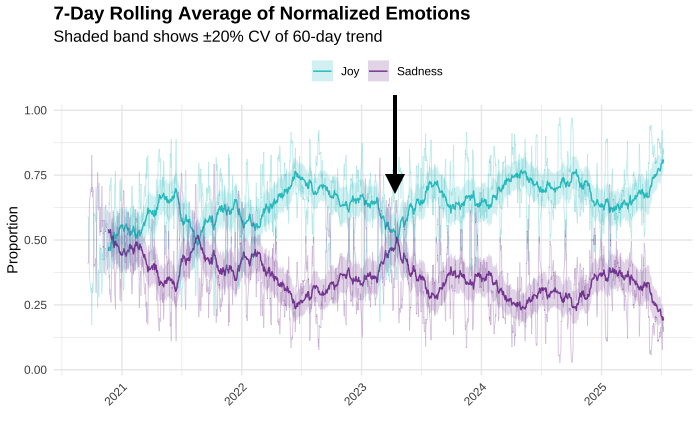Signatures of Fatigue: Transformer-Based Sentiment Analysis for Internal Load Monitoring

This work explores novel applications of Artificial Intelligence, specifically transformer-based models, for objective assessment of athletes’ internal load and emotional states.
The study presents the first large-scale application of sentiment and semantic analysis to self-reported training and racing comments from endurance athletes. It addresses the challenge of processing extensive free-text logs, which often contain crucial, unfiltered insights into an athlete’s response to training and competition that traditional metrics may miss.
Our methodology leverages a two-step natural language processing pipeline to extract emotional tone (e.g., joy, sadness) and salient keywords from athlete comments. Predictive modeling using XGBoost identified subjective “feel” as the strongest predictor of emotional state, followed by age. Key findings include:
Meaningful associations between emotional tone and factors such as training modality (e.g., running elicited more “joy” than rowing), age group (younger athletes reported more “joy” and slightly higher “sadness”), and experience level (beginner athletes reported less “joy”).
No significant emotional differences were observed across days of the week or gender in this dataset.
A case study demonstrated how fluctuations in “sadness” and “joy” scores, derived from text comments, correlated with a significant real-life event (an injury impacting a race goal).
This research highlights the potential of semantic analysis, when used alongside established internal load monitoring tools, to provide complementary information for a comprehensive understanding of an athlete’s acute and longitudinal training responses and psychological readiness. It underscores the importance of considering both demographic and behavioral context for personalized athlete management strategies, while emphasizing transparency and user agency in data practices.
